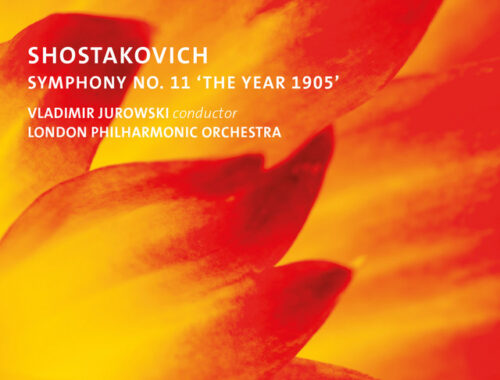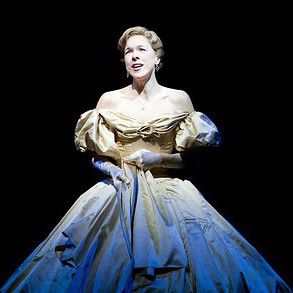Verdi “Falstaff”, Royal Opera House
Where there’s Falstaff there’s food. And Robert Carsen’s new staging of Verdi’s final operatic masterpiece plays like an ode to gastronomical excess. It begins with a binge and ends with a banquet and even the scene of the fat knight’s ill-fated liaison with Alice Ford takes place in her spanking new kitchen: state of the art, psychedelic yellow.
It could only be the 1950s – that optically challenging time of bold patterns and bolder colour-clashing when fissures were beginning to appear in merry England’s class system and new money, some of it ill-gotten, was amassing at the wrong end of the food chain. Enter the once proud Falstaff living off his wits with only a motley crew of spivs between him and the gutter. Carsen’s designer Paul Steinberg contains the entire show within wood paneled walls wherein the symbols of grander days – hunting, shooting, and one appropriately hungry horse – come back to haunt us. Hostess trollies seem to have bred in Falstaff’s room at the Garter Inn where the debris of at least a month’s meals have accumulated as a reminder of his ever increasing debts while the merry wives of Windsor – the ladies who lunch – do their plotting in a fashionable nearby restaurant where Ford’s daughter Nanetta’s young bow Fenton works as a waiter stealing furtive kisses between courses. Neat.
I like the way Carsen sees Falstaff as an old Vaudevillian hitting him with a follow spot for a celebratory “turn” (“On your way, old John”) when he thinks his seduction of Alice is in the bag. The resulting mayhem at Ford’s house is athletically choreographed with slow-mo insanity underlining those “frozen moments” in the eye of the storm.
Daniele Gatti chronicles the pithiness and rudeness and beauty of Verdi’s miraculously intricate and innovative score with an acutely well-heard and rhythmically well-sprung precision. The vocal ensemble is well balanced and defined between characterful male and female voices. The ladies “collude” with a seaside postcard relish, Marie-Nicole Lemieux’s well-upholstered Quickly ripely countering lovely Ana Maria Martinez’ elegant shaping of Alice’s music. Amanda Forsythe’s Nannetta spins sweetness on top.
Dalibor Jenis’ squat and angry Ford is (paradoxically) vocally less persuasive than the old knight set on cuckolding him but then it helps immeasurably to have an Italian Falstaff. Ambrogio Maestri (well named) is wonderfully real, animating all aspects of the text and making great play of the innate contradiction between a booming, boorish, authority and those mellifluous remnants of wily old airs and graces.
You May Also Like

MUSICALS Podcast: Edward Seckerson meets ZACHARY JAMES
06/03/2024
GRAMOPHONE Review: Shostakovich Symphony No. 11 ‘The Year 1905’ – London Philharmonic Orchestra/Jurowski
09/12/2020